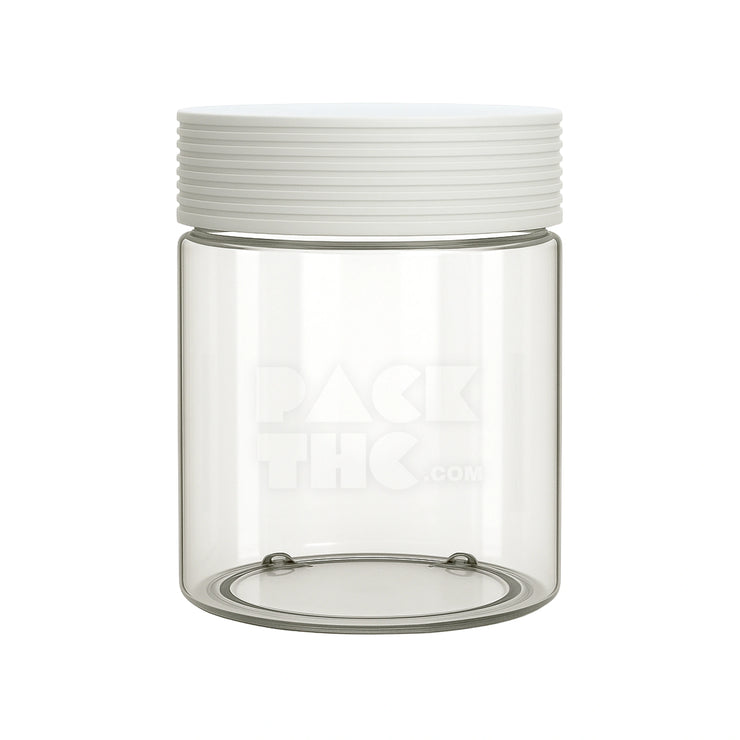Navigating packaging regulations can be complex for businesses operating in multiple states. Florida and Georgia each have distinct requirements that companies must understand to ensure legal compliance and avoid costly penalties. This comprehensive guide breaks down the essential packaging rules in both states to help your business stay compliant.
Understanding the Regulatory Framework
Both Florida and Georgia operate under a dual regulatory system where federal laws establish the baseline requirements, while state-specific regulations add additional layers of compliance. The Fair Packaging and Labeling Act serves as the foundation, requiring all consumer commodities to display net contents, commodity identity, and manufacturer information clearly.
Florida Packaging Requirements
General Food and Consumer Products
Florida's Department of Agriculture and Consumer Services oversees most packaging regulations within the state. All food products must comply with federal FDA standards while meeting additional state-specific requirements. Product labels must include accurate ingredient lists, nutritional information where applicable, and proper allergen declarations.
Manufacturing facilities must maintain detailed records of packaging materials used, particularly for food contact surfaces. The state requires traceability documentation that allows for rapid identification during potential recalls or safety investigations.
Hemp and Cannabis Product Packaging
Florida has implemented some of the most stringent hemp and cannabis packaging requirements in the nation. As of March 2025, updated regulations require child-resistant containers for all hemp extract products. These containers must meet specific testing standards and cannot be easily opened by children under five years of age.
Cannabis products must be packaged in opaque materials that prevent visual identification of contents from outside the package. All labeling must include potency information, serving size recommendations, and comprehensive warning statements about health risks and legal restrictions.
Beverage and Alcohol Packaging
Florida maintains specific requirements for alcoholic beverage packaging, including mandatory warning labels and age verification statements. Non-alcoholic beverages must comply with standard food labeling requirements but may have additional restrictions on health claims and marketing language.
Georgia Packaging Regulations
Rule 40-15-3: Comprehensive Packaging Standards
Georgia's Rule 40-15-3 establishes detailed requirements for all packaged commodities sold within the state. This regulation mandates that non-consumer packages must display identity declarations on the exterior packaging, clearly identifying the commodity contents without requiring package opening.
The rule extends beyond simple labeling to encompass package integrity, ensuring that containers adequately protect contents during normal distribution and storage conditions. This includes requirements for moisture barriers, temperature resistance, and structural integrity standards.
Food Safety and Manufacturing Codes
Under Georgia Code Title 26, all food, drug, and cosmetic products must meet strict labeling and safety standards. The state prohibits the manufacture, sale, or distribution of any adulterated or misbranded products, with penalties including facility shutdowns and product recalls.
Georgia requires product codes indicating manufacturing dates on all labels and packages. This requirement facilitates rapid response during recall situations and helps maintain supply chain traceability. When using co-packers, businesses must clearly indicate "Manufactured for" along with the actual manufacturer's physical address.
International Standards Alignment
Beginning January 1, 2026, Georgia will implement new technical regulations for plastic materials intended for food contact. These regulations align with European Union standards, potentially affecting businesses that use plastic packaging for food products. Companies should begin preparing for these enhanced requirements well in advance of the implementation date.
Federal Compliance Requirements
Fair Packaging and Labeling Act
Both states must enforce federal requirements under the Fair Packaging and Labeling Act. This legislation mandates that all consumer commodities display net quantity declarations in both metric and US customary units, depending on the product category. The act also requires clear identification of the product and the responsible party (manufacturer, packer, or distributor).
FDA Food Safety Modernization Act
Food packaging in both states must comply with FDA requirements under the Food Safety Modernization Act. This includes implementing Hazard Analysis and Critical Control Points (HACCP) systems for food contact packaging materials and maintaining detailed documentation of packaging safety protocols.
Industry-Specific Considerations
Pharmaceutical and Medical Device Packaging
Both states enforce strict requirements for pharmaceutical and medical device packaging, including tamper-evident features, expiration date displays, and specific storage condition statements. These products often require additional federal compliance with DEA regulations for controlled substances.
Agricultural Product Packaging
Agricultural products face unique packaging requirements in both states, particularly regarding pesticide residue declarations, organic certification displays, and country of origin labeling. Fresh produce packaging must meet specific ventilation and moisture control standards to maintain product quality during distribution.
Hazardous Material Packaging
Products containing hazardous materials must comply with Department of Transportation packaging standards in addition to state requirements. This includes proper labeling with hazard symbols, shipping classifications, and emergency contact information.
Best Practices for Multi-State Compliance
Develop Comprehensive Labeling Systems
Create labeling systems that meet the highest standards required across all markets where you operate. This approach simplifies production processes and reduces the risk of non-compliance when products cross state lines.
Maintain Detailed Documentation
Keep comprehensive records of all packaging materials, suppliers, and testing results. Both states may request this documentation during inspections or investigations, and proper record-keeping demonstrates good faith compliance efforts.
Regular Compliance Audits
Conduct regular internal audits of packaging practices to identify potential compliance gaps before they become violations. This proactive approach helps maintain consistent quality and reduces regulatory risk.
Stay Updated on Regulatory Changes
Subscribe to updates from both state agriculture departments and relevant federal agencies. Packaging regulations evolve frequently, and staying informed helps prevent inadvertent violations.
Common Compliance Challenges
Label Space Limitations
Small packaging formats can make it challenging to include all required information. Both states allow for specific exemptions and alternative labeling methods for very small packages, but these require advance approval from regulatory authorities.
Multi-Language Requirements
While neither state mandates multi-language labeling for most products, businesses serving diverse populations should consider accessibility when designing packaging. Some federal programs may require bilingual labeling for participation.
Supply Chain Coordination
Ensuring that all packaging suppliers understand and comply with state-specific requirements can be challenging. Establish clear specifications and regular verification processes with all vendors in your packaging supply chain.
Enforcement and Penalties
Both Florida and Georgia actively enforce packaging regulations through regular inspections and consumer complaint investigations. Violations can result in warning letters, monetary penalties, product recalls, and in severe cases, facility shutdowns or criminal charges.
The cost of non-compliance often far exceeds the investment required for proper packaging systems. Beyond direct penalties, businesses may face reputation damage, lost sales, and expensive corrective actions.
Future Regulatory Trends
Packaging regulations in both states are evolving toward greater sustainability requirements and enhanced consumer protection. Businesses should anticipate future requirements for recyclable materials, reduced packaging waste, and improved supply chain transparency.
Environmental considerations are becoming increasingly important in packaging regulations. Both states are exploring requirements for post-consumer recycled content and restrictions on certain packaging materials deemed environmentally harmful.
Conclusion
Successful compliance with packaging rules in Florida and Georgia requires a thorough understanding of both state-specific requirements and federal baseline standards. By implementing comprehensive labeling systems, maintaining detailed documentation, and staying current with regulatory changes, businesses can navigate these requirements effectively while protecting consumers and maintaining market access.
The investment in proper packaging compliance pays dividends through reduced regulatory risk, enhanced consumer trust, and streamlined operations across multiple markets. As regulations continue to evolve, businesses that prioritize compliance will be better positioned for long-term success in these important southeastern markets.



































